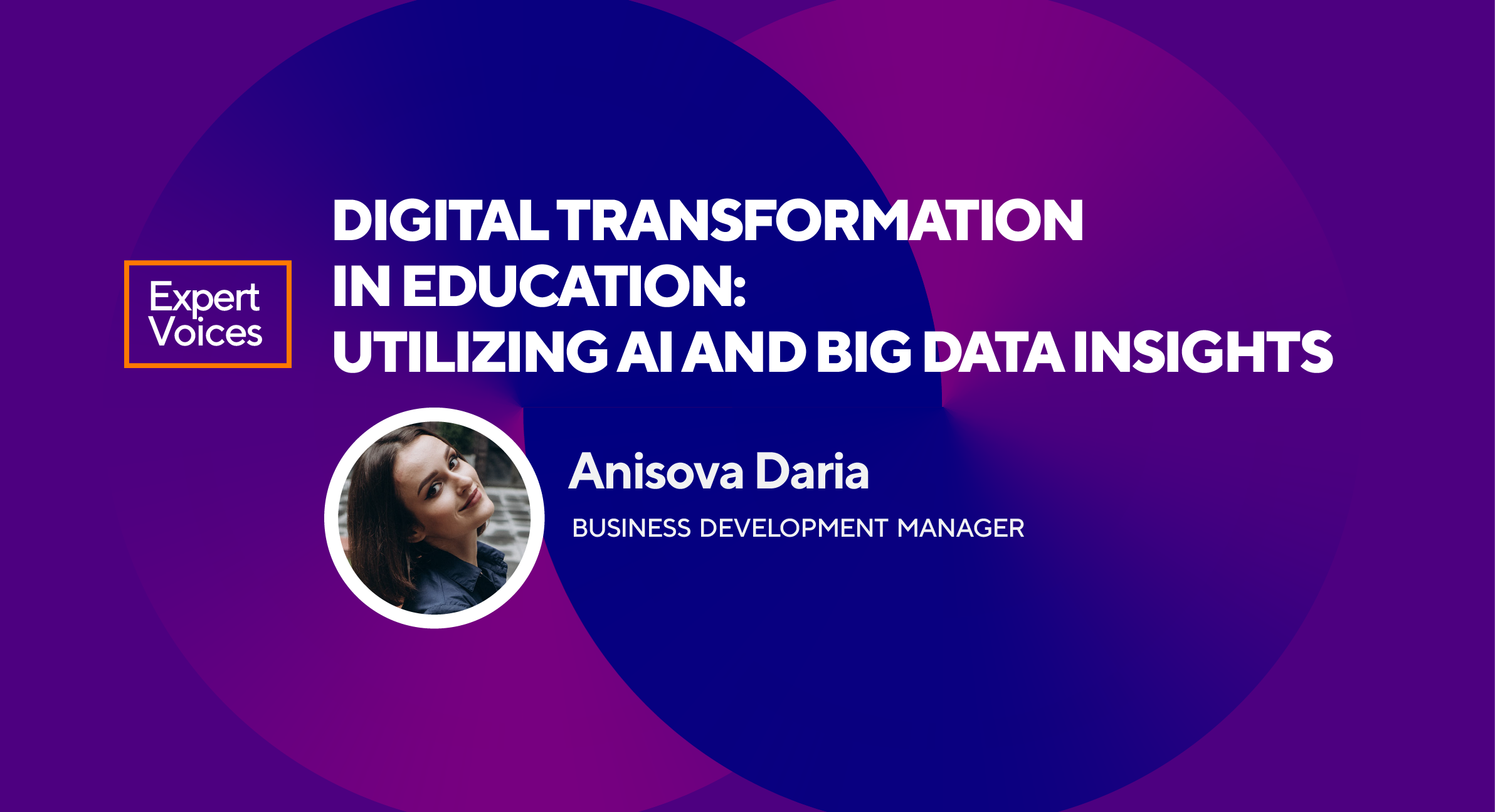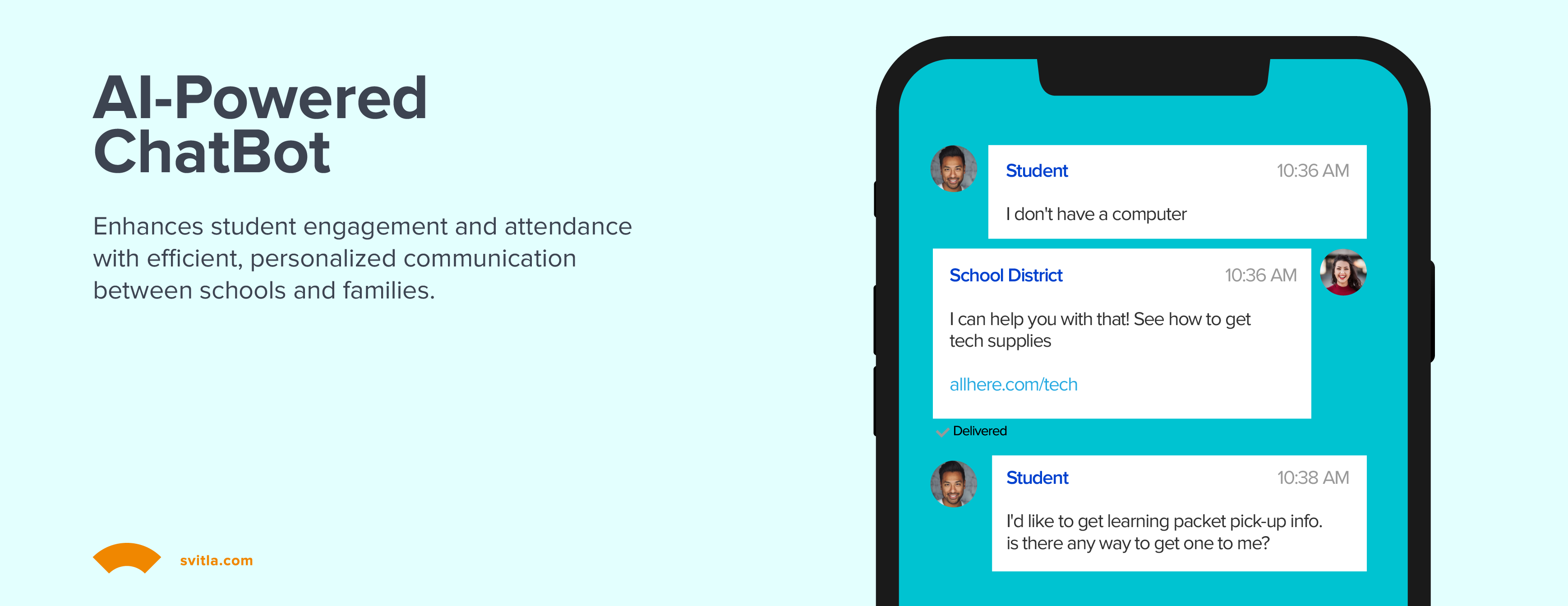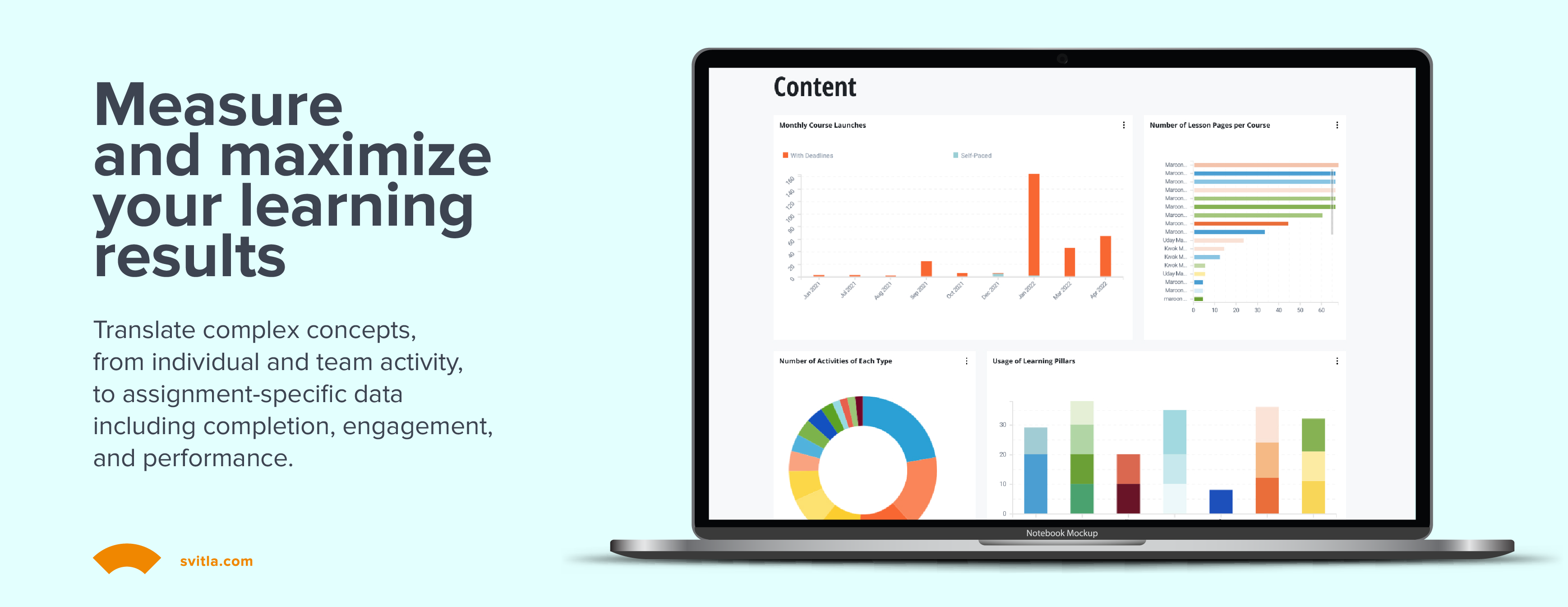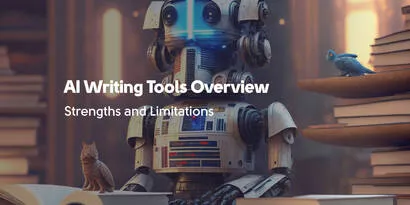
Leveraging AI in Education: Exploring Big Data and Related Applications
In recent years, technology has become increasingly vital in shaping the landscape of education. From traditional classrooms to online learning platforms, the integration of technology has revolutionized how knowledge is imparted and acquired. One of the significant advancements in this realm is the application of Artificial Intelligence (AI) and Big Data.
Artificial Intelligence has opened up new horizons in education. With machine learning algorithms and data analysis, AI-powered tools personalize education and enable tailored instruction, immediate feedback, and adaptive assessments, optimizing the learning experience for each student.
Additionally, AI-driven virtual tutors and chatbots are gaining prominence, offering round-the-clock support to learners. These intelligent systems can provide instant answers to students’ queries, offer explanations, and guide students through complex concepts, empowering them to explore and deepen their understanding.
Big Data, on the other hand, plays a crucial role in education by collecting and analyzing data like student performance metrics, feedback from assessments, and even social interactions within learning platforms, generated within the educational ecosystem.
Adapting Artificial Intelligence and Big Data to education holds immense potential as technology advances. It empowers educators to deliver personalized, adaptive, and engaging learning experiences, while providing valuable insights that shape pedagogical practices.
Thus, the growing importance of technology in education, specifically through the utilization of Artificial Intelligence and Big Data, has the potential to transform the learning landscape, optimize educational outcomes, and nurture a generation of digitally fluent and adaptable learners.
Understanding Big Data in Education
In education, the concept of Big Data refers to large volumes of structured and unstructured data generated within the educational ecosystem, including student information, academic records, assessments, social interactions, and more. Big Data in education encompasses the collection, analysis, and interpretation of vast amounts of data to derive meaningful insights and patterns that inform educational practices and policies. It involves leveraging technology and advanced analytics techniques to make sense of the diverse data points generated across various educational systems and platforms.
Big Data in education is characterized by its immense volume, variety, velocity, and veracity. It encompasses diverse types of structured and unstructured data from various sources, including learning management systems and online platforms. The velocity of data generation requires real-time processing for timely interventions and personalized support. Ensuring data veracity is crucial to maintain accuracy and integrity when working with educational data.

Benefits of Big Data in Education
- Personalized learning: Analyzing Big Data enables tailored instruction and personalized learning experiences based on individual student needs, preferences, and progress. A study conducted by the Bill & Melinda Gates Foundation demonstrated that personalized learning has the potential to boost student achievement by 7% compared to traditional methods, highlighting its effectiveness.
- Early intervention and support: Big Data analytics identify students at risk and enable timely interventions to provide necessary support and improve student outcomes. Numerous states, districts, and schools have successfully acquired the necessary data to monitor student progress and achievement, and some have effectively utilized it. A notable example is Fresno, where the implementation of a new data system revealed a lack of awareness among students regarding their college options. In response, the district took proactive measures by creating personalized college information packets for each senior who met the state's college requirements. The outcome was remarkable, with a 50 percent surge in the number of students applying to California public universities.
- Evidence-based decision making: Educational institutions can make data-driven decisions by analyzing educational data, evaluating interventions, and enhancing teaching methodologies and resource allocation.
- Continuous improvement: Big Data analysis provides insights to refine teaching strategies, improve curriculum effectiveness, and enhance the overall quality of education.
In conclusion, Big Data in education represents a transformative opportunity to harness the power of data analytics and gain valuable insights that shape educational practices and policies. By collecting, analyzing, and leveraging Big Data, educational institutions can unlock new possibilities for personalized learning, early intervention, evidence-based decision making, and continuous improvement to ensure better educational outcomes for all learners.
The Svitla team has extensive experience integrating Big Data into a wide variety of business processes, including education, and using advanced analytical tools. As a result, we are skilled at developing powerful and tailored software solutions tailored for educational institutions.
The Role of AI in Analyzing Big Data
Artificial Intelligence (AI) has become a game-changer in many industries, including education. Combined with data within the educational sphere, AI algorithms can unlock powerful insights and revolutionize the way educators understand and utilize information. Here, we explore the role of AI in analyzing Big Data in the educational sector.
In education, AI spans personalized learning platforms, intelligent tutoring systems, chatbots, and data analytics tools. AI algorithms process and analyze Big Data to uncover patterns, predict outcomes, and provide valuable insights for educators.
With the increasing digitization of educational processes, enormous amounts of data are generated, including student performance metrics, learning activities, assessments, and more. AI algorithms can effectively process and analyze this data in the following ways:
- Personalization: AI algorithms can analyze individual student data to identify learning preferences, strengths, and areas for improvement. By considering various factors such as learning style, pace, and content preferences, AI can personalize instruction, recommend tailored resources, and provide adaptive learning experiences that optimize student engagement and success.
- Predictive analytics: AI algorithms can analyze historical educational data to make predictions about student outcomes. By identifying patterns and correlations in the data, AI can forecast potential risks, such as students at risk of dropping out or struggling with specific subjects. This enables educators to intervene early and provide targeted support, improving student retention and academic performance.
- Intelligent tutoring systems: AI-powered tutoring systems leverage natural language processing and machine learning to provide interactive and personalized learning experiences. These systems can assess student knowledge, identify misconceptions, and offer targeted feedback and guidance. AI algorithms continuously adapt to student responses, refining the tutoring experience and optimizing learning outcomes.
- Chatbots and virtual assistants: AI-driven chatbots and virtual assistants can enhance student support services. These intelligent systems can answer frequently asked questions, provide guidance on course selection, offer study tips, and assist with administrative tasks. By leveraging natural language processing capabilities, AI chatbots can engage in human-like conversations, improving accessibility and responsiveness for students.

Benefits of AI in Analyzing Big Data
Enhanced decision making: AI algorithms analyze complex educational data sets and provide valuable insights to educators and administrators. These insights inform evidence-based decision-making, enabling institutions to improve teaching methodologies, curriculum design, resource allocation, and student support services.
Personalized learning: AI-powered platforms can adapt instruction based on individual student needs, preferences, and learning styles. By analyzing Big Data, AI algorithms deliver customized content, adapt the learning pace, and provide real-time feedback, promoting personalized and self-directed learning experiences.
Our client offers quality education through a unique teaching methodology based on the emotional, intellectual, and social development of each student. They provide the necessary tools and experiences needed to face the challenges of today’s changing, multicultural, and competitive society. Our client has an international presence, with offices in the United States, Mexico, Spain, and Chile, serving more than 1000 schools.
Efficient data analysis: AI algorithms can process vast amounts of data at a speed and scale beyond human capabilities. By automating data analysis, AI saves time for educators, allowing them to focus on interpreting the insights and implementing appropriate interventions effectively.
Continuous improvement: Through iterative data analysis, AI algorithms facilitate continuous improvement in educational practices. By identifying trends, evaluating interventions, and measuring student progress, AI supports educators in refining their instructional strategies, enhancing curriculum design, and maximizing learning outcomes.
In a nutshell the role of AI in analyzing Big Data within the educational sector is transformative. AI algorithms offer:
- Advanced data processing capabilities
- Personalization of educational services
- Predictive analytics
- Intelligent tutoring systems
- Data-driven decision making
- Personalized support
- Optimized learning experience for students
Enhancing Personalized Learning through AI
Artificial Intelligence (AI) plays a crucial role in advancing personalized learning, tailoring educational experiences and optimizing learning outcomes. Here, we delve into how AI enhances personalized learning and explore the benefits and challenges of implementing this approach with AI and Big Data.
Personalization based on individual student needs: AI algorithms analyze vast amounts of educational data, including student performance, learning styles, preferences, and progress, to create tailored learning experiences. By considering these factors, AI can customize content, delivery methods, and assessments to match each student's requirements.
Our client's product enables scalable learning by powering engaging online spaces for professional communities to share knowledge. Involved communities enable multi-stakeholder groups to quickly assemble fully tagged, searchable knowledge bases to leverage machine-aided and peer-to-peer content curation. Through a design thinking methodology, peer-to-peer learning environments, and deep analytics, the Product is revolutionizing how knowledge is shared and scaled. The platform helps organizations break down knowledge silos and create a culture of scalable learning. The Service's Communities empower learners to become participants and producers of knowledge rather than merely consumers of content.
Benefits of AI in Personalized Learning:
Customized content: AI algorithms can curate and deliver content that aligns with the specific needs and interests of individual students. By analyzing data on student performance, AI can recommend appropriate resources, adapt learning materials, and provide targeted enrichment or remediation activities.
For instance, Svitla helped our client to create captivating online courses. The first course is a comprehensive YouTube Influencer course – the only one in the world where the world's top influencers teach how to create viral original content, develop a massive following online, and monetize your audience.
Adaptive instruction: AI-powered systems can adapt instruction in real-time, providing immediate feedback and guidance. By monitoring student responses, AI algorithms can dynamically adjust the difficulty level, pacing, and sequencing of learning activities, ensuring optimal challenge and engagement.
Our client’s collaborative learning platform empowers organizations to design and deliver experiential learning that accelerates business performance. Global corporations, executive education providers, and training firms rely on this platform to develop high-value capabilities through coaching, mentorship, and group collaboration. Their proven approach to learning connects diverse groups of learners, mentors, and leaders in a high-impact online environment, unlocking organizations’ collective knowledge.
Intelligent feedback: AI can provide timely and constructive feedback to students, highlighting areas of improvement and suggesting personalized strategies for mastery. This continuous feedback loop fosters self-reflection and empowers students to take ownership of their learning journey.
Data-driven insights: AI algorithms analyze educational data to generate actionable insights for educators. These insights inform instructional decision-making, allowing teachers to identify learning gaps, adapt teaching strategies, and provide targeted interventions that support each student's progress.

Unlock the transformative potential of artificial intelligence (AI) in the educational sphere with Svitla's in-depth expertise. Svitla's AI solutions offer boundless opportunities to revolutionize teaching, learning, and administrative processes, fostering a more engaging, personalized, and efficient educational experience.
Challenges of Implementing Personalized Learning with AI and Big Data:
- Data privacy and security: It is crucial to ensure the ethical use of student data and to implement robust data protection measures.
- Access and equity: It’s essential to bridge the gap between technologies and learners. For example, students from underserved communities must have equal access to AI-powered personal learning experiences.
- Teacher training and support: Educators need proper training and support to effectively interpret AI-generated insights, personalize instruction, and strike a balance between technology and human interaction in the classroom.
- Ethical considerations: It is vital to address biases, ensure algorithmic transparency, and maintain algorithmic accountability to build trust and maintain ethical standards.
Bottom line
The benefits of AI in personalized learning include customized content, adaptive instruction, intelligent feedback, and data-driven insights. However, challenges related to data privacy, access and equity, teacher training, and ethical considerations must be addressed to ensure the responsible and equitable implementation of personalized learning with AI. With careful planning and support, AI-powered personalized learning has the potential to revolutionize education, empowering each student to reach their full potential.
AI-Powered Educational Assistants and Virtual Teachers
Virtual assistants and chatbots have become valuable assets in the educational sphere. They employ natural language processing and machine learning algorithms to comprehend user queries, provide assistance, and facilitate seamless learning experiences.
AI-powered educational assistants and virtual teachers offer numerous benefits. First, they provide personalized support, tailoring their responses and resources to meet the specific needs of individual students. This personalized approach enhances the learning experience, catering to each student's unique requirements.
Second, virtual assistants are available round-the-clock, ensuring 24/7 access to help and resources. Students can seek guidance at their convenience, fostering independence and self-directed learning.
Third, AI-powered educational assistants offer scalability and consistency since they handle multiple queries simultaneously, ensuring seamless support for a large number of students. Additionally, they provide consistent responses and feedback, eliminating discrepancies in instructional delivery and promoting equitable access to information.
Finally, the immediate feedback and support offered by virtual teachers and assistants are invaluable. Students receive instant feedback on their work, allowing them to identify errors and areas for improvement in real-time. This feedback loop boosts learning efficiency and facilitates student progress.
Limitations of AI-powered Solutions
It is important to recognize the limitations of AI-powered educational assistants and virtual teachers. They may struggle to replicate the human element found in traditional teacher-student interactions. The personal touch, empathy, and emotional connection that come with face-to-face interactions may be lacking in AI systems. Additionally, AI algorithms may face challenges in addressing complex problems that require critical thinking, creativity, and subjective judgment.
Data dependence and privacy concerns also arise when implementing AI-powered systems. These assistants rely on extensive student data to personalize their responses. Ensuring data privacy and security, as well as addressing ethical considerations surrounding the use of student data, are essential when integrating AI into education.
Lastly, technical limitations may hinder the effectiveness of AI-powered assistants. The accuracy of these systems in understanding and responding to complex or contextually nuanced queries can be affected. This may result in incomplete or incorrect information being provided to students.
Bottom line
AI-powered educational assistants and virtual teachers have the potential to greatly enhance education delivery. Their personalized support, 24/7 availability, scalability, and immediate feedback bring significant advantages to the learning experience. However, limitations such as the lack of human interaction, challenges in complex problem-solving, data privacy concerns, and technical constraints should be taken into consideration. Striking the right balance between leveraging the benefits of AI and maintaining the essential role of human educators is crucial for a comprehensive and successful educational experience.
Final thoughts
AI-powered educational assistants, virtual teachers, and personalized learning systems offer numerous advantages, including personalized support, scalability, 24/7 availability, immediate feedback, and data-driven insights. These technologies have the power to enhance the learning experience, bridge educational gaps, and empower both students and educators.
However, it is crucial to approach the integration of AI in education thoughtfully and responsibly. Ethical considerations, data privacy, inclusivity, and the role of human educators must be carefully addressed. Collaboration between educators, researchers, policymakers, and technology developers is key to navigating the challenges and maximizing the benefits of AI in education.
The future of education lies in striking the right balance between leveraging the power of AI technology and maintaining the essential elements of human interaction, empathy, and creativity. AI should be viewed as a powerful tool that enhances and supports the work of educators, rather than replacing them. The role of educators will evolve to include utilizing AI-generated insights, personalizing instruction, and fostering critical thinking and socio-emotional skills.
As we move forward, it is important to prioritize investments in teacher training, research, and equitable access to AI-powered educational tools. That’s how we can create a future where personalized, inclusive, and lifelong learning becomes the norm, empowering individuals to thrive in a rapidly changing world.
Svitla Systems helps clients select and implement AI and Big Data solutions that perfectly align with their unique business requirements. With in-depth knowledge and expertise of AI and Big Data technologies, our engineers seamlessly integrate these solutions for our customers.
Svitla representatives can help you explore how we can collaborate strategically to enhance your adoption of AI and Big Data solutions. Contact us and we’ll get back to you shortly.
Let's discuss your project
We look forward to learning more and consulting you about your product idea or helping you find the right solution for an existing project.
Your message is received. Svitla's sales manager of your region will contact you to discuss how we could be helpful.



